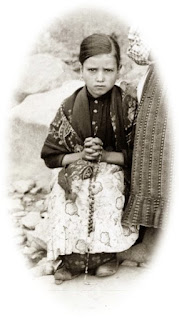The following is taken from Dom Guéranger's entry in The Liturgical Year for April 26, in Volume VIII of the 1983 Marian House edition of the English translation by the Benedictines of Stanbrook.
"Two bright stars appear this day on the ecclesiastical cycle, proclaiming the glory of our Jesus, the Conqueror of death. Again they are two pontiffs, and martyr pontiffs [a reference to the feast day of Sts. Soter and Caius on April 22]. Cletus leads us to the very commencement of the Church, for he was a disciple of Peter, and his second successor in the See of Rome. Marcellinus was a witness of the great persecution under Diocletian; he governed the Church on the eve of her triumph. Let us honour these two fathers of Christendom, who laid down their lives in its defence; and let us offer their merits to Jesus, who supported them by His grace, and cheered them with the hope that one day they would share in His Resurrection."Dom Guéranger then reproduces the accounts of the two saints found in the Breviary:
"Pray for us, O holy Pontiffs, and look with fatherly love upon the Church on earth, which was so violently persecuted in your times, and at the present day is far from enjoying peace. The worship of idols is revived; and though they be not of stone or medal, yet they that adore them are as determined to propagate their worship as were the pagans of former days to make all mean idolaters. The gods and goddesses now in favour are called Liberty, Progress, and Modern Civilization. Every measure is resorted to, in order to impose these new divinities upon the world; they that refuse to adore them are persecuted; governments are secularized, that is, unchristianized; the education of youth is made independent of all moral teaching; the religious element is rejected from life as an intrusion: and all this is done with such a show of reasonableness that thousands of well-minded Christians are led to be its advocates, timid perhaps and partial, but still its advocates."
"Preserve us, O holy martyrs! from being the dupes of this artful impiety. It was not in vain that our Jesus suffered death, and rose again from the grave. Surely after this He deserves to be what He is - King of the whole earth, under whose power are all creatures. It is in order to obey Him that we wish no other liberty save that which He has based upon the Gospel; no other progress save that which follows the path He has marked out; no other civilization save that which results from the fulfillment of the duties to our fellow men, which He has established. It is He that created human nature and gave it its laws; it is He that redeemed it, and restored to it is lost rights. Him alone, then, do we adore. O holy martyrs! pray that we may never become the dupes or slaves of the theories of human pride, even if they that frame or uphold them should have power to make us suffer or die for our resistance."
Collect:
O Eternal Shepherd, do Thou look favorably upon Thy flock, which we beseech Thee to guard and keep forevermore through the blessed Cletus and Marcellinus Thy Martyrs and Supreme Pontiffs, whom Thou didst choose to be the chief shepherds of the whole Church. Through our Lord.






.jpg)






